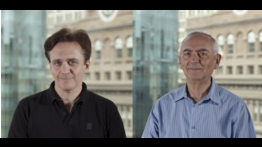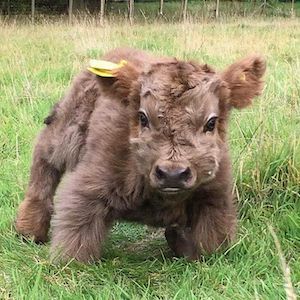Two Cooper Engineering Faculty Retire
POSTED ON: September 2, 2020

Two esteemed professors from the Albert Nerken School of Engineering, Leonid Vulakh and Alan Wolf, have announced their retirement from the Cooper Union. Though they arrived at Cooper through disparate paths, both were drawn to the school to work with highly motivated students.
“I have been lucky to be a member of Cooper Union faculty and I have been fortunate to teach the students of Cooper Union, who are very bright and talented,” Dr. Vulakh said recently.
Having trained at the Moscow Aviation Institute, he earned a Master of Science in Control Science in 1963. Subsequently, then concluded his studies at Moscow State University where he obtained a Master of Art in Mathematics in 1965 and a Doctor of Philosophy in Mathematics in 1971.
After immigrating to the United States from Ukraine in 1985, he began teaching at The Cooper Union as Associate Professor of Mathematics in 1988 and then Professor of Mathematics in 1994. In total, Dr. Vulakh has been teaching mathematics for more than 50 years.
An expert and respected voice in the industry, Dr. Vulakh authored such textbooks as "Matrix Theory" and "Discrete Mathematics," which were published in 1974 and 1985, respectively. He has also published 25 papers on Number Theory and Hyperbolic Geometry, as well as two papers on Applied Mathematics.
His colleague and mutual retiree, Alan Wolf, arrived at The Cooper Union in 1974 as a student of physics, but he needed to leave two years later when that degree was terminated; he finished his undergraduate degree at SUNY-Stonybrook. He moved on to The University of Texas at Austin to earn his PhD in physics, researching Chaos theory, at the time a newly emerging field. For his dissertation he developed the first algorithm for detecting and quantifying deterministic chaotic behavior in any time series (essentially any meaningful list of numbers, from stock prices to oscillations in a car’s suspension system to voltage variations in a circuit). As of 2020, the paper outlining the algorithm, “Determining Lyapunov exponents from a Time Series,” which appeared in the journal Physica D, has been cited over 10,000 times in academic publications in remarkably diverse fields.
Professor Wolf has been chair of the Physics Department since 2005, and has co-curated two exhibitions with Ellen Lupton—noted graphic designer, curator, and Cooper graduate—exhibitions that found the intersection between science and design, “Interference Patterns” and “Numbers.” In 2012, Professor Wolf taught a course in Scientific Photography, which resulted in Engineering students displaying artistic photography portfolios in the Houghton Gallery Exhibition, “How Do We Look?”
Perhaps Professor Wolf’s best-known contribution to the Cooper educational experience is Invention Factory®, a summer program that he and Professor Eric Lima developed with a gift from alumnus Edward Durbin, a 1948 graduate in electrical engineering. The program, which requires students to research, develop, and make a prototype of an invention, was greatly informed by Professor Wolf’s other professional métier, the study of patent law. After serving as a juror on an intriguing, attempted murder case, he decided to earn a law degree at Cardozo University while teaching a full load at The Cooper Union. He was invited by Cardozo to teach Introduction to Law and Legal Theory,” and eventually courses on patent law and patent litigation. Back at Cooper, his Invention Factory students not only conceived of and prototyped inventions but also filed provisional patent applications. (Professor Wolf and Professor Lima, have patented their own invention for dispensing wet cat food.) Invention Factory will continue at Cooper and has now been adopted by The Indian Institute of Technology and Syracuse University.
Not surprisingly, he has a host of plans for his post-Cooper life: to start with, he recently married; his wife, Gina, retired this year as well. The newlyweds will be moving somewhere in the Austin-Houston, Texas area to be near Professor Wolf’s daughter’s family, including two granddaughters. They plan to build a ranch, complete with horses and––in Wolfian take-the-unexpected-route fashion—miniature cows. He’s not sure about his equestrian skills: “I may mostly want to pet the horses,” he reports.
The Cooper community thanks both Professors Vulakh and Wolf for their years of service and their commitment to educating generations of students.





